As a songwriter, solo artist and member of country supergroup Pistol Annies, the Southern songbird has found her sweet spot
In some ways, 2018 felt like a breakthrough year for Ashley Monroe. Both Sparrow, her fourth studio album as a solo artist, and Interstate Gospel, the third record by country supergroup Pistol Annies, found their way into the hearts of fans and critics alike. Even alongside her fellow Annies bandmates, Miranda Lambert and Angaleena Presley, there’s a sense that Monroe has found her voice and style – soulful and raw, prepared to mine her life in order to find her truth.
Of course, this was no overnight success. Having taken the 180-mile journey west from her hometown of Knoxville to Nashville as a 15-year-old in order to pursue a career in music, Monroe has long been established as a writer and artist in Music City and beyond. Her solo debut Satisfied was followed by the first Pistol Annies album Hell On Heels in 2011 and she has been making increasingly large waves ever since, culminating with that pair of incredible albums from last year.
We recently had the chance to chat with Monroe about her life in music…
Were you brought up in a musical household?
“I grew up in Knoxville, Tennessee and a lot of my dad’s side of the family lived on the same road. All of my family were really close, including my mum’s side, and we always had music on in my house. We would be playing The Eagles, Lynyrd Skynyrd or Bonnie Raitt. Patsy Cline was my first tape in my first stocking. My dad could sing and my grandpa’s first cousin was Carl Smith, who was married to June Carter, so I have relatives that were in the business. Music was always around when I was growing up.”
At what point did you then start playing an instrument?
“I started playing the piano first, before the guitar. That was when my dad was still alive and everything was great. I started taking piano lessons and was obsessed with classical music. I would sit up in my room and cry and my mum would come and go, ‘What’s wrong?’ I’d say, ‘Do you feel that?’ and she was like, ‘Not really.’ My dad was definitely the more musical one. So I’d be like, ‘Just get out of here Mum!’ I knew early on that I had a deep connection with music.
“Then I started singing in church. I sang Amazing Grace a cappella and it was a big hit. I was so shy, but said I’d do one more song the next Sunday. I started to sing and forgot the lyrics. That could have been a real career killer but I kept getting back up and singing. I started being in shows when I was 10 and 11. I was in talent contests, singing all the time. But then my dad got sick when I’d just turned 13. He was diagnosed with pancreatic cancer which had already spread to his liver and it was too late. I also had two car wrecks in the middle of all that. Then my dad died and everything fell apart.”
That must have had a huge impact on your music?
“My relationship with music changed. Then it wasn’t just something I loved to do, it was the only thing I had and that’s when I started writing. My heart was shattered, I didn’t know what was going on and all I could do was write songs.”
Were you always writing songs, or was it also poems or diary entries?
“Oh no, it was always songs. That’s the thing, even during those two car wrecks that I had, I don’t remember this but everyone around me said that I started singing. I was singing Amazing Grace in the ambulance, that’s my go-to I guess. I like to sing the thing that I’m feeling, it helps me process.
“So it was just songwriting and I kind of stalled but then I had the feeling that I’ve got to make this my career, this isn’t just therapy, this has to be the reason that me and my mum get out of town. ‘You’ve got to make it and you’ve got to figure it out.’”
And there weren’t any dilemmas with regards to education?
“I remember watching TV when I was little and seeing Kenny Chesney’s video for Whatever It Takes. Everybody knew everybody back then and so the phone rang and someone said, ‘Kenny’s on TV!’ So I just saw people around me making it. Even Carlene Carter, I grew up with her as a cousin and would listen to her tape all the time. When Leann Rimes broke I was like, ‘Oh she is really going for it and I’m going to too.’ Seeing real people make it helps you realise that it can happen, it doesn’t just have to be something you wish would.”
What steps did you take next?
“My mum and I moved to Nashville when I was 15. We didn’t know anyone. I didn’t have any gigs but I would go to Broadway, back before they were IDing, and I would get up and ask the band if I could sing with them. Somebody heard me who knew somebody and they then hooked me up with my first publisher and that’s when I got signed as a songwriter, when I was 17. So I was writing all day every day, my mum was taking me to writing appointments. Then I ended up getting signed to Sony the label, as an artist, when I was 17 or 18.”
So that world of the writers’ room is pretty much all you’ve ever known…
“It really is. I’m 32 now. Everybody around me feels like a family here. I had my first publishing deal and I was writing. I then got my first cut, thanks to my publisher at the time. She really was a fighter for songs, especially this song that I had written with Brett James, who was another champion of mine when I moved to town. He and I had written a song called The Truth and she got it cut by Jason Aldean and it became a No 1.
“That was a huge moment as a songwriter, when BMI had the No 1 party. I was only in my early twenties when Jason ended up cutting it. That made me feel so proud, seeing my mum there at the party. I’m very proud of my songwriting and to be able to have Jason sing a song that I wrote was such an honour.”
Did you always plan to write for other people and pursue your own career?
“I always wanted to sing too, but I still liked writing for other people. There’s a song called Flat On The Floor; we wrote that with Carrie (Underwood) in mind. It was perfect for her, I love that she sang it and I’m so glad she cut it but I always had songs that were so genuinely me that I wanted to sing them, no-one else was cutting them.”
So you wouldn’t put those songs into any pitches?
“I’d let people have most of my songs, unless it was something that I was obsessed with. Because my own record wasn’t really a threat, I could have those songs on different records too.”
Is there a different skill set involved when you know you’re writing for yourself, versus writing for someone else?
“I don’t really know. I’ve never minded when artists that I love and respect sing my songs. I only ever think that’s cool. But there are songs that I feel are coming straight from me, like Hands On You and I guess there is a difference. I just don’t know what that difference is.”
It amazes us how you can all be so open and honest with your co-writers.
“Yeah, I don’t know either. I don’t overthink things when it comes to music because I tend to overthink everything else in my life. Music is more, ’Just go with it,’ for me.”

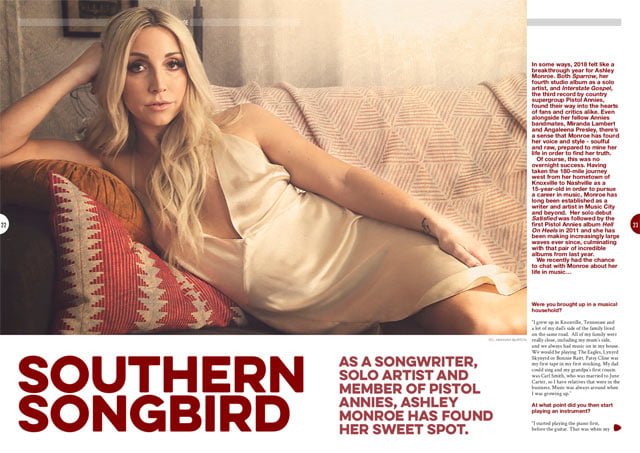
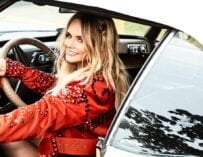
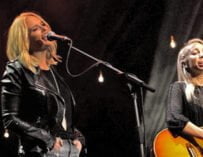
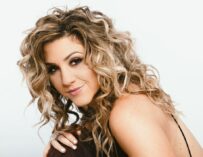
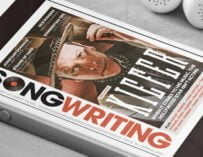
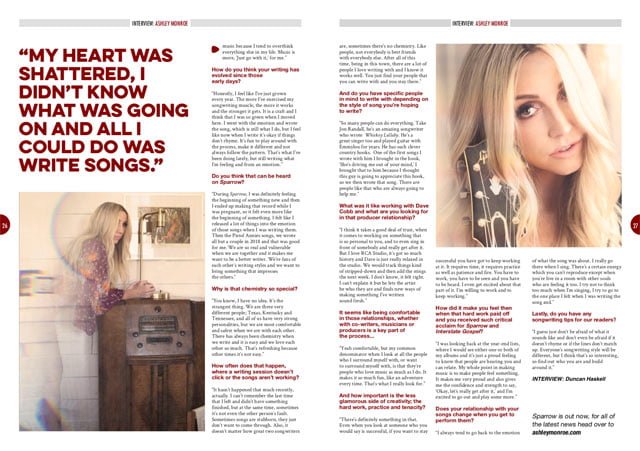






























Related Articles